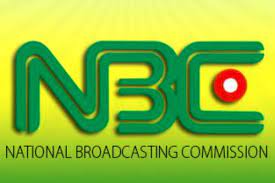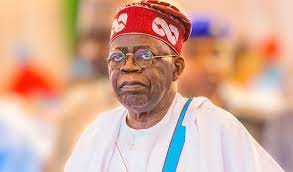
The ECOWAS Court of Justice has declared some provisions of the Nigeria Broadcasting Code as infringements on Nigerian citizens’ rights, including freedom of expression.
The affected provisions of the law, the sixth edition, are Articles 3 (1) (1), 3(1) (2), 15(2) (1) of the NBC and Article 15 (5) (1) of the Amendments to the code.

The court, according to a statement from its communications unit, delivered the judgment on 23 October, declaring that the codes “contravene Article 9 (1) & (2) of the African Charter on human and Peoples’ Rights (ACHPR)”.
“Consequently, it ordered the Respondent (the Nigerian government) to align Articles 3 (1) (1), 3(1) (2), 15(2) (1) of the Nigeria Broadcasting Code (6th Edition) and Article 15 (5) (1) of the Amendments to the Nigeria Broadcasting Code (6th Edition) with its international obligations.
“In addition, it ordered that the Respondent ceases to give effect to Articles 3 (1) (1), 3(1) (2), 15(2) (1) of the Nigeria Broadcasting Code (6th Edition) and Article 15 (5) (1) of the Amendments to the Nigeria Broadcasting Code (6th Edition) until it has aligned same as ordered.
“It dismissed all other claims by the Applicants,” the statement said.
The suit was filed by a civil society organisation, Expression now Human Rights Initiative.
JUDGMENT OF THE COURT IN THE CASE: THE INCORPORATED TRUSTEES OF EXPRESSION NOW HUMAN RIGHTS INITIATIVE AGAINST THE FEDERAL REPUBLIC OF NIGERIA
APPLICATION NO: ECW/CCJ/APP/35/40
The ECOWAS Court of Justice, on Monday 23rd October 2023 delivered a judgment in the case brought by the Incorporated Trustees of Expression now Human Rights Initiative before it alleging the violation of various human rights enshrined in fundamental human rights law, particularly the freedom of expression by the Federal Republic of Nigeria.
The Applicant, The Incorporated Trustees of Expression now Human Rights Initiative, a Non-Governmental Organization, focused on protecting Nigerian citizens’ freedom of expression both offline and online, collaborates with bloggers and journalists. It argues that the Nigeria Broadcasting Code, a federal law, restricts freedom of expression through specific provisions (Articles 3 (1) (1), 3 (1) (2), and Amendment Article 15 (5) (1)). The Applicant alleges that these provisions infringe upon their freedom of expression rights, as well as those of their agents and collaborators, and seeks court declarations and orders.
The Respondent, the Federal Republic of Nigeria, denies violating the Applicant’s freedom of expression and emphasises its duty to protect citizens’ rights. It argues that the Code aims to promote local content, prevent monopolistic practices, and boost advertising revenue for local broadcasters and content producers. The Respondent states that the National Broadcasting Commission can penalise stations for broadcasting content that incites hate or public disorder. It denies using the Code to stifle freedom of expression or harass the Applicant and seek court declarations, including dismissing the suit for lack of merit.
By its judgment of 23 October 2023, after acknowledging its jurisdiction and declaring the application admissible, the Court ruled that Articles 3 (1) (1), 3(1) (2), 15(2) (1) of the Nigeria Broadcasting Code (6th Edition) and Article 15 (5) (1) of the Amendments to the Nigeria Broadcasting Code (6th Edition) contravenes Article 9 (1) & (2) of the African Charter on human and Peoples’ Rights (ACHPR).
Consequently, It ordered the Respondent to align Articles 3 (1) (1), 3(1) (2), 15(2) (1) of the Nigeria Broadcasting Code (6th Edition) and Article 15 (5) (1) of the Amendments to the Nigeria Broadcasting Code (6th Edition) with its international obligations.
In addition, it ordered that the Respondent ceases to give effect to Articles 3 (1) (1), 3(1) (2), 15(2) (1) of the Nigeria Broadcasting Code (6th Edition) and Article 15 (5) (1) of the Amendments to the Nigeria Broadcasting Code (6th Edition) until it has aligned same as ordered.
It dismissed all other claims by the Applicants.
The panel of judges who heard the case is composed of Dupe Atoki, presiding, Sengu Mohamed Koroma, judge rapporteur, and Ricardo Cláudio Monteiro Gonçalves, member.




GIPHY App Key not set. Please check settings